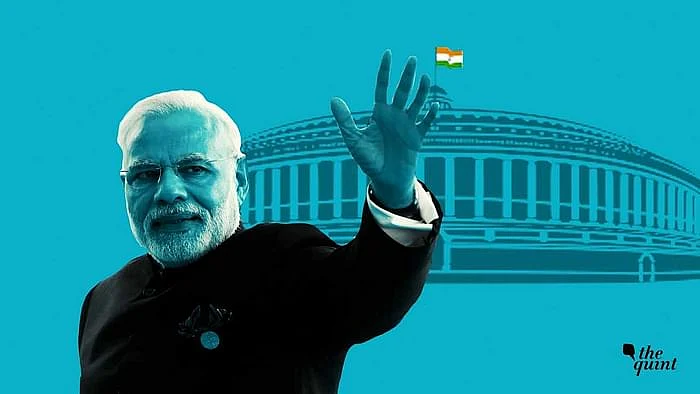An analysis by the Varieties of Democracy (V-Dem) Institute headquartered in Sweden, has observed that India has gone from being an electoral democracy to an ‘electoral autocracy’.
“The world’s largest democracy has turned into an electoral autocracy,” it reads.
The report, which carries a data-based analysis measuring the erosion of democracy, has listed India as a ‘major autocratiser’ in its summary. Last year, the V-Dem report had said that India was on the verge of losing its status as a democracy.
A graph illustrating the decline of democracy in South Asian nations – India, Bangladesh, Pakistan, Nepal, and Sri Lanka – shows that India’s descent to becoming an electoral autocracy began in 2014, when the Bhartiya Janata Party (BJP) first came to power.
“Narendra Modi led the BJP to victory in India’s 2014 elections and most of the decline occurred following BJP’s victory and their promotion of a Hindu-nationalist agenda,” the report states.
Stages of Autocratisation and the State’s Media Censorship Efforts
The V-Dem report states that the process of autocratisation “typically follows a similar pattern across very different contexts”.
According to the report, it begins with the establishment attacking the media and civil society, which is followed by breeding polarisation in society by “disrespecting opponents and spreading false information”. Finally, it culminates in undermining formal institutions such as elections.
In a section titled ‘India: Democracy Broken Down’, the report notes that the BJP-ruled nation has largely followed this trajectory, with freedom of speech, media freedom, and civil society being attacked relentlessly and routinely.
It says, “The Indian government rarely, if ever, used to exercise censorship as evidenced by its score of 3.5 out of 4 before Modi became Prime Minister. By 2020, this score is close to 1.5, meaning that censorship efforts are becoming routine and no longer even restricted to sensitive (to the government) issues.”
“... the Modi-led government in India has used laws on sedition, defamation, and counterterrorism to silence critics. For example, over 7,000 people have been charged with sedition after the BJP assumed power and most of the accused are critics of the ruling party.”Varieties of Democracy Institute report
In a graph that highlights ‘change indicators’, the most extreme decline is visible in media censorship efforts of the government, repression of civil society organisations, and the autonomy of the Election Commission of India.
Constraints on Civil Society
Varieties of Democracy also cites the dissolution of secularist ideals to note that the government has constrained civil society.
It states, “The BJP have increasingly used the Foreign Contributions Regulation Act [FCRA] to restrict the entry, exit, and functioning of civil society organisations,” and adds that civil society organisations aligned with the Hindutva movement have gained the confidence to operate more freely.
Mentioning the Citizenship Amendment Act that was passed in the Parliament in 2019, the report says, “It makes it possible for illegal immigrants that are Hindu, Sikh, Buddhist, Jain, Parsi, or Christian to become citizens while denying it to Muslims.”
The Unlawful Activities (Prevention) Act also finds a mention in the report, which it notes is being used to “harass, intimidate, and imprison political opponents” as well as people speaking out against the government’s policies.
India Finds a Part in ‘Third Wave of Autocratisation’
India is among the countries leading the ‘third wave of autocratisation’, the report says, saying that 68% of the world’s population now lives under autocratic regimes.
“The sharp increase (in autocratisation) in the last few years is the result of autocratisation in large countries like India,” the report notes, adding that “this reflects an accelerating wave of autocratisation engulfing 25 nations that hold 1/3 of the world’s population—2.6 billion people.”
The V-Dem report comes at a time when US-based human rights organisation Freedom House has also lowered India to “partly free” in its annual freedom world rankings. India was ranked as ‘free’ in this index before 2021.
India has continually found itself to be the subject of interest to independent organisations mapping democratic freedoms. In the annual ‘Freedom in the World’ report, India dropped to 67 from 71.
In December 2020, out of 162 countries, India occupied the 111th place in the Cato Institute’s Human Freedom Index 2020.
(At The Quint, we question everything. Play an active role in shaping our journalism by becoming a member today.)
